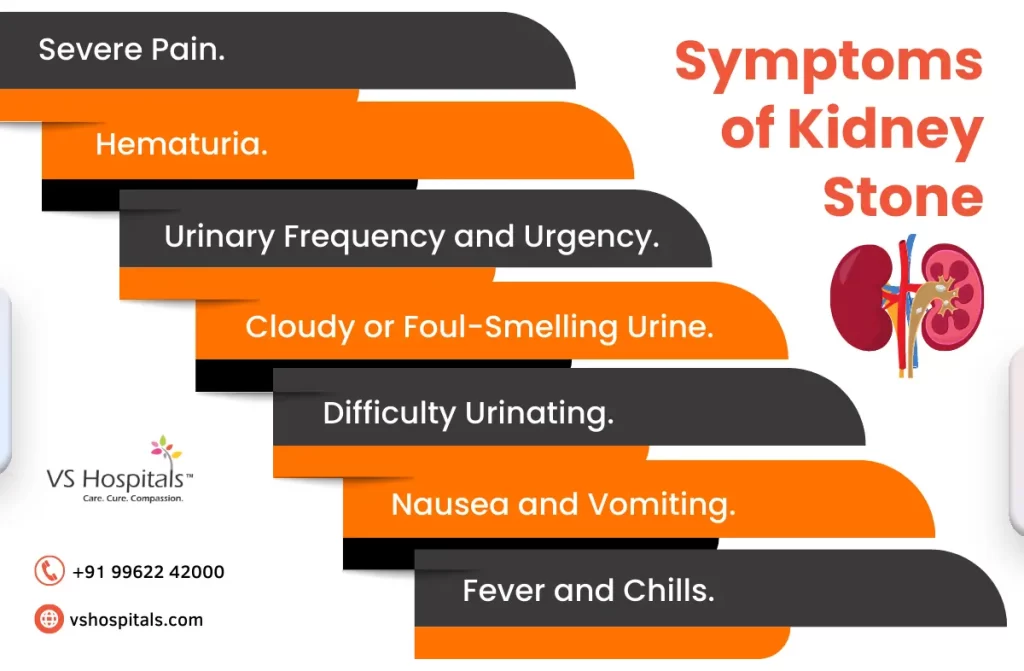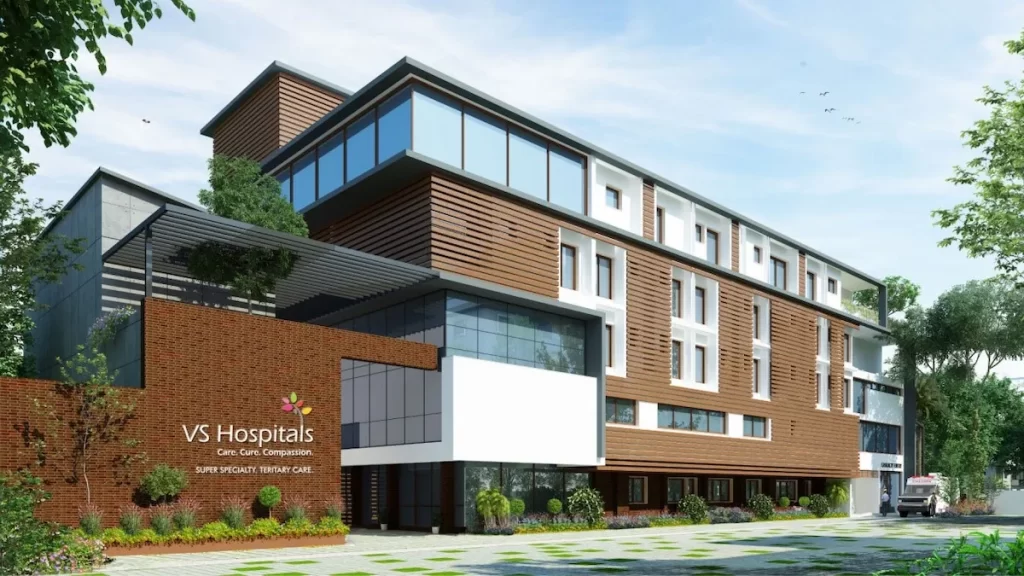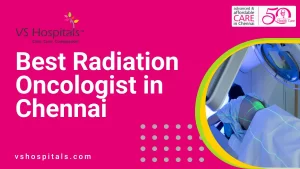Kidney stone specialist hospital is a state-of-the-art medical facility dedicated to the diagnosis and treatment of kidney stones. Kidney stones, also known as renal calculi, are small, hard mineral deposits that form inside the kidneys and can cause excruciating pain and discomfort. This best kidney stone hospital in Chennai is specialized in providing comprehensive care for patients suffering from kidney stones and related conditions, offering advanced treatment procedures and expert medical guidance.
When to Approach Kidney Stone Specialist Hospital?
Patients experiencing symptoms such as severe abdominal or back pain, blood in the urine, frequent urination, and painful urination should consider approaching the best kidney stone hospital in Chennai. Additionally, individuals with a history of recurrent kidney stones, urinary tract infections, or a family history of kidney stones should seek evaluation and treatment to prevent complications and recurrence.

Best Kidney Stone Hospital in Chennai
VS Hospitals
VS Hospitals is a premier kidney hospital in Chennai renowned for its excellent care and welcoming ambiance. Staffed with experienced doctors dedicated to enhancing patients’ quality of life, the hospital offers effective treatment and personalized care.
As the best kidney stone hospital in Chennai, VS Hospitals combines world-class preventive care with advanced technology to deliver a comprehensive healthcare system. Their holistic approach ensures that patients receive the best possible care through various services, including:
- Frequent Doctor Visits: Regular consultations to monitor and manage patient health.
- Home Health Services: Providing care and medical services at the patient’s home for convenience and comfort.
- Diagnostic Services: Comprehensive blood tests and scans to accurately diagnose and track health conditions.
- Data Analytics: Utilizing advanced data analytics to tailor treatments and predict health trends.
This all-encompassing approach ensures that every patient receives top-notch care, making VS Hospitals the leading choice for kidney stone treatment in Chennai.
Vinita Hospital
Vinita Hospital is a distinguished kidney hospital in Chennai, recognized for its exceptional care and welcoming environment. Staffed with highly experienced doctors, the hospital is dedicated to enhancing patients’ quality of life through effective treatments and personalized care plans.
As the Best Kidney Stone Hospital in Chennai, Vinita Hospital combines state-of-the-art preventive care with the latest technology to provide a comprehensive healthcare system. Their holistic approach ensures that patients receive superior care through a variety of services, including:
- Frequent Doctor Visits: Regular consultations to monitor and manage patient health.
- Home Health Services: Offering medical care at the patient’s home for convenience and comfort.
- Diagnostic Services: Extensive blood tests and imaging to accurately diagnose and track health conditions.
- Data Analytics: Utilizing advanced data analytics to tailor treatments and predict health trends.
This comprehensive approach ensures that every patient receives the highest level of care, making Vinita Hospital the preferred choice for kidney stone treatment in Chennai.
Rela MS Hospital
Rela MS Hospital is a premier kidney hospital in Chennai, celebrated for its outstanding care and inviting ambiance. The hospital’s team of experienced doctors is committed to improving patients’ quality of life through effective treatments and personalized care.
As the Best Kidney Stone Hospital in Chennai, Rela MS Hospital merges world-class preventive care with advanced technology to offer a comprehensive healthcare system. Their holistic approach guarantees that patients receive the finest care through a variety of services, including:
- Frequent Doctor Visits: Regular consultations to monitor and manage patient health.
- Home Health Services: Providing medical services at the patient’s home for convenience and comfort.
- Diagnostic Services: In-depth blood tests and imaging to precisely diagnose and monitor health conditions.
- Data Analytics: Leveraging advanced data analytics to customize treatments and predict health trends.
This comprehensive approach guarantees exceptional care for every patient, establishing Rela MS Hospital as the premier choice for kidney stone treatment in Chennai.
Medway Hospitals
Medway Hospitals stands out as a top kidney hospital in Chennai, known for its excellent care and welcoming atmosphere. The hospital is staffed with highly skilled doctors dedicated to enhancing patients’ quality of life through effective treatments and personalized care.
As the Best Kidney Stone Hospital in Chennai, Medway Hospitals integrates world-class preventive care with cutting-edge technology to provide a comprehensive healthcare system. Their holistic approach ensures that patients receive superior care through a range of services, including:
- Frequent Doctor Visits: Regular consultations to monitor and manage patient health.
- Home Health Services: Offering medical care at the patient’s home for convenience and comfort.
- Diagnostic Services: Extensive blood tests and imaging to accurately diagnose and track health conditions.
- Data Analytics: Utilizing advanced data analytics to tailor treatments and predict health trends.
This comprehensive approach guarantees that every patient receives top-notch care, making Medway Hospitals the leading choice for kidney stone treatment in Chennai.
Iswarya Hospital
Iswarya Hospital is a leading kidney hospital in Chennai, recognized for its exceptional care and welcoming ambiance. The hospital’s team of experienced doctors is committed to enhancing patients’ quality of life through effective treatments and personalized care plans.
As the Best Kidney Stone Hospital in Chennai, Iswarya Hospital combines state-of-the-art preventive care with the latest technology to deliver a comprehensive healthcare system. Their holistic approach ensures that patients receive superior care through a variety of services, including:
- Frequent Doctor Visits: Regular consultations to monitor and manage patient health.
- Home Health Services: Offering medical care at the patient’s home for convenience and comfort.
- Diagnostic Services: Comprehensive blood tests and imaging to accurately diagnose and track health conditions.
- Data Analytics: Leveraging advanced data analytics to customize treatments and predict health trends.
This comprehensive approach guarantees that every patient receives the highest level of care, making Iswarya Hospital the preferred choice for kidney stone treatment in Chennai.
Conditions Treated
The best kidney stone hospital in Chennai addresses a wide range of conditions related to kidney stones, including but not limited to:
- Kidney Stones (Renal Calculi): Treatment for all types of kidney stones, including calcium oxalate, calcium phosphate, uric acid, cystine, and struvite stones.
- Urinary Tract Infections (UTIs): Infections that can increase the risk of kidney stone formation and hinder the healing process.
- Hydronephrosis: Swelling of the kidney caused by a blockage, commonly associated with large kidney stones.
- Recurrent Stone Formation: Addressing underlying factors to prevent the recurrence of kidney stones.
Causes Of Kidney Stones
Kidney stones can form due to various factors:
- Dehydration: Insufficient fluid intake can lead to concentrated urine and stone formation.
- Diet: High levels of oxalate, calcium, and purines in food can contribute.
- Family history: Genetic predisposition may increase the risk.
- Urinary tract issues: Infections or obstructions can lead to stone development.
- Medical conditions: Conditions like hyperparathyroidism and gout can increase the risk.
- Medications: Certain medications may promote stone formation.
Prevention often involves dietary and lifestyle changes.
Types Of Stones
Kidney stones can be categorized into several types based on their composition:
- Calcium oxalate stones: The most common type, formed by calcium and oxalate.
- Uric acid stones: Uric acid stones develop when there is an elevated concentration of uric acid in the urinary tract.
- Struvite stones: Typically result from urinary tract infections and are composed of magnesium, ammonium, and phosphate.
- Cystine stones: Rare, hereditary stones made of the amino acid cystine.
- Other types: Some stones may be composed of various minerals or substances, such as xanthine or indinavir.
The type of stone influences treatment and prevention strategies.
Diagnosis of Best Kidney Stone Hospital in Chennai
At the best kidney stone hospital in Chennai, a comprehensive evaluation is conducted to diagnose kidney stones accurately. Diagnostic procedures include:
- Medical History and Physical Examination: The specialist reviews the patient’s medical history and performs a physical examination to assess symptoms and risk factors.
- Imaging Studies: Advanced imaging techniques such as ultrasound, X-ray, CT scan, or MRI are used to identify the presence, size, and location of kidney stones.
- Urinalysis: A urine sample is analyzed to check for the presence of blood, crystals, or infection, which may indicate kidney stones.
- Blood Tests: Blood tests help evaluate kidney function and identify underlying metabolic abnormalities contributing to kidney stone formation.
Treatment Procedures
The best kidney stone hospital in Chennai offers a range of effective treatment options tailored to the patient’s condition and stone characteristics. Treatment procedures include:
- Extracorporeal Shock Wave Lithotripsy (ESWL): A non-invasive procedure that uses shock waves to break large kidney stones into smaller fragments for easier passage.
- Ureteroscopy (URS) with Laser Lithotripsy: At the kidney stone hospital Chennai, a minimally invasive procedure where a thin scope is inserted through the urethra and bladder to break or remove stones in the ureter or kidney using laser energy.
- Percutaneous Nephrolithotomy (PCNL): Suitable for larger or complex kidney stones, PCNL involves creating a small incision in the back to remove stones from the kidney directly.
- Medication: Depending on the stone type, certain medications may be prescribed to help dissolve or prevent further stone formation.
- Lifestyle Modifications: Patients are advised on dietary changes, increased fluid intake, and lifestyle adjustments to reduce the risk of recurrent kidney stones.
Benefits and Risks
The best kidney stone hospital in Chennai offers several advantages to patients seeking treatment:
- Expertise: Specialized urologists and nephrologists with extensive experience in managing kidney stone cases.
- Advanced Technology: The kidney stone hospital Chennai is equipped with state-of-the-art medical equipment, enabling accurate diagnoses and effective treatment.
- Comprehensive Care: Patients receive personalized care, including post-treatment follow-up, to monitor recovery and prevent future stone formation.
Despite the benefits, all medical procedures carry some risks. Potential risks associated with kidney stone treatment may include:
- Bleeding or Infection: Invasive procedures carry a slight risk of bleeding or infection, which is closely monitored and managed.
- Ureteral Injury: There is a small risk of injury to the ureter during certain treatments, but this is rare and usually repaired during the procedure performed at the kidney stone hospital Chennai.
- Stone Recurrence: Despite treatment, there is a chance of new stone formation, emphasizing the importance of lifestyle changes and follow-up care.
Symptoms Of Kidney Stones
- Pain: Intense discomfort located in the back or on the side.
- Hematuria: Blood in urine.
- Frequency: Increased urge to urinate.
- Urgency: Sudden need to urinate.
- Cloudy or Foul-smelling Urine: Indicates infection.
- Nausea and Vomiting: Due to pain or blockage.
- Fever and Chills: Sign of infection.
- Difficulty Urinating: Straining or discomfort.
- Reduced Urine Output: Decreased volume of urine.
- Sharp Flank Pain: Radiates to lower abdomen and groin.
- Painful Urination: Discomfort during urination.
- Pink, Red, or Brown Urine: Presence of blood.
Prevention Of Kidney Stones
- Stay Hydrated: Drink plenty of water to maintain urine volume.
- Dietary Changes: Reduce salt, limit animal proteins, and avoid excessive oxalate-rich foods.
- Calcium Intake: Ensure an adequate but not excessive calcium intake.
- Limit Caffeine and Alcohol: Both can contribute to dehydration.
- Monitor Sodium Intake: Reduce high-sodium foods to prevent calcium buildup.
- Maintain a Healthy Weight: The likelihood of developing kidney stones may rise with obesity.
- Limit Oxalate-rich Foods: Such as beets, nuts, and chocolate.
- Moderate Protein Intake: Excessive protein can lead to stone formation.
- Control Blood Pressure: Manage hypertension to reduce kidney stone risk.
- Citrus Fruits: Consume fruits high in citrate to prevent stone formation.
Conclusion
Patients experiencing symptoms or with a history of kidney stones should not hesitate to seek medical attention at VS Hospitals. With advanced diagnostic tools, a range of effective treatment procedures, and personalized care, the best kidney stone hospital in Chennai aims to provide relief to patients and improve their quality of life. The ultimate goal is to alleviate the pain and discomfort caused by kidney stones and prevent their recurrence through expert medical guidance and lifestyle modifications.





